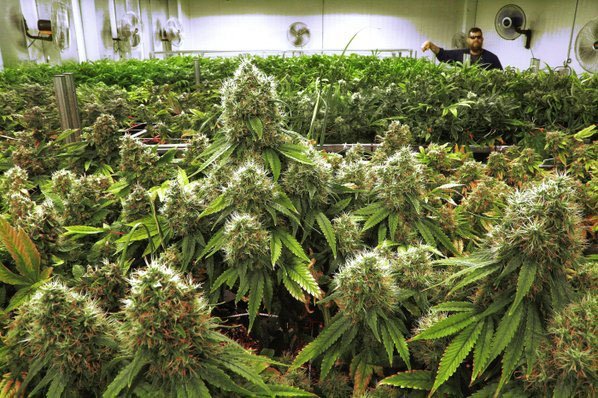In Arkansas, agricultural hemp production is in its infancy, said Karen Lee, Extension assistant for the Small Farm Program at the University of Arkansas at Pine Bluff.
There has been little research done within the state that successfully demonstrates best practices. UAPB will be offering virtual workshops to explore hemp production.
"Since this is a new crop, Extension production recommendations for Arkansas are not yet available," Lee said. "However, in observing different producers over the past couple of months, I noticed some practices that should be addressed before anyone considers hemp production in southern Arkansas."
First and foremost, many producers are not aware of the Arkansas Farm Bill's rules concerning hemp production, Lee said. Anyone interested in hemp production should read "Hemp Program Rules & the Law," which outlines the legality of producing hemp according to the Farm Bill. It is available online at www.agriculture.arkansas.gov/.
Lee said a producer first needs to obtain his or her growers license from the Arkansas Agriculture Department (AAD). Growers can find application requirements for licenses on the AAD website at www.agriculture.arkansas.gov/hemp-home.
"The application process requires obtaining a letter of intent from a processor or buyer who will indicate they plan to purchase or buy the producer's hemp crop," she said. "Other requirements include getting a background check and identifying the intended field location with latitude and longitude coordinates."
In her conversations with Arkansas hemp producers, Lee has noted some common problems and challenges, which include lack of knowledge on seeds, transplants and clones; low soil pH levels (less than pH 6.0); compacted soil; poor drainage; and limited availability of pesticides to control diseases and insects.
"I have also noticed that some producers trust others with little or no experience for guidance and advice," Lee said. "Farmers understand that there is always a potential for loss – even if one does everything by the book. Mother nature always has the final say. However, success is better guaranteed with more planning and being prepared."
Getting an understanding before jumping in can not only save money and time, but can also help ensure greater profits, she said. Hemp production requires work and dedication, and it can be a very laborious undertaking.
"Industrial hemp can be lucrative, but there are several things to consider before growing it," Lee said. "The crop requires manual labor, there are only a few pesticides available for the control of weeds, insects and diseases, and the laws and fees concerning industrial hemp change every year."
Those who want to learn about the ins and outs of hemp production in Arkansas should plan on attending a series of virtual workshops hosted by the UAPB Small Farm Program, Lee said.
"Any individual going into hemp production, should do so with a basic foundation of law, rules, regulations and knowledge of the correct way to move from start to finish," she said.
"The workshops will be a good start for interested producers."
During the workshops, agricultural specialists will provide information, assistance and guidance on the ins and outs of hemp production in Arkansas. Presenters will include an attorney, an Arkansas Department of Agriculture hemp production manager and a hemp crop specialist.
The virtual meetings will take place on the Zoom videoconferencing platform. Even if someone cannot access through video, they will be able to connect by phone. Producers can contact Karen Lee, UAPB Extension assistant, at leek@uapb.edu or (870) 575-7225 to have the links or connection instructions sent to their email address. She can also provide a schedule and updates in regard to the workshop series.
"Now is the time to be preparing for the upcoming season," Lee said. "It is my hope that more farmers will take advantage of the blossoming opportunity while the chance to get involved is more affordable."
In May, Henry English, director of the UAPB Small Farm Program, said interest in growing industrial hemp for cannabidiol (CBD) oil was increasing among small farmers because of the crop's profit potential.
Will Hehemann is a writer/editor at the UAPB School of Agriculture, Fisheries and Human Sciences.
